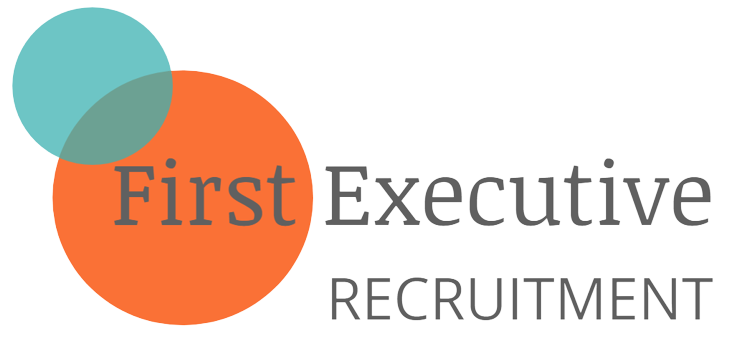As recruitment specialists, it is vital that we enable our clients to recruit a diverse workforce from the very top of the organisation down. Diversity and inclusion matter. The data reveals, time and again, that diverse workforces are the most productive, innovative, creative and efficient. Yet too many workplaces remain inherently racist environments.
A recent large scale survey by the TUC revealed that more than 120,000 workers in the UK have left their job because of racism. On top of that, more than a quarter of minority ethnic workers have encountered racist jokes in their workplace in the last five years. It is staggering that we are still reporting statistics like this when we know that lack of diversity hinders a business, even before we consider the ethical matters.
Perhaps, even more shockingly, this data is unlikely to represent the true scale of the problem. The survey also revealed, in the words of TUC general secretary Frances O’Grady, “the vast majority did not report this [racist bullying and harassment] to their employer.” Many are afraid to report racist incidents, for fear of repercussion, job loss or simply not being taken seriously. However, employees that are subjected to bullying and harassment at work – whatever the reason – are less likely to be committed, engaged and motivated employees. Employers lose out when racism goes unchecked in their workplaces.
We’ve got to do more, starting with recruitment
Matthew Percival, director for skills and inclusion at the Confederation of British Industry (CBI) has said: “This data shows there is still a way to go in addressing racial and ethnic equality across society. Businesses must be doing all they can to build an inclusive workplace and tackle discrimination.”
I believe that employers need to take a top down approach to tackling racism in the workplace, starting with recruitment. We need to follow CBI suggestions, such as better ethnicity pay gap reporting, but we specifically need to improve diversity at board and senior leadership levels and promote diverse and inclusive cultures.
Earlier in the year, I wrote an article specifically about how to make inclusivity a reality in your workplace. Within it, I talked about the benefits of diversity and inclusion, and looked at a number of ways to improve it within a workplace. All of these points remain imperative, but we particularly need to understand why diversity in recruitment is essential, and not much else can improve without this.
Diversity and inclusion in recruitment
Even without intention, recruitment is the stage at which a lack of diversity and inclusion seeps into a workplace culture. Unconscious bias and using recruitment processes that don’t even attract a diverse talent pool, let alone active employees, fuels a workplace where issues such as racism can snowball rather than dissipate.
As such, it is vitally important that recruitment practices are fair and unbiased and shaped to mitigate inclusivity concerns. This is particularly important at the executive and senior leadership level. If your business has a diverse and inclusive board, through diverse and inclusive executive recruitment, then this shapes the culture of the whole organisation, and tackles issues like racism from within and from the top.
So, what does inclusive executive recruitment look like?
Facets of inclusive recruitment
I’ve talked before about the propensity of a board to recruit new members in its own image. It may not be conscious (or it may be), but there’s a leaning to recruit other board members who are like you and other board members. It’s ‘comfortable’ and ‘easy’. The problem is that this shuts the door on opportunity for the business, as well as for individuals. Just being aware of it is rarely enough to combat it.
However, there are things you can do.
1. Use an inclusive executive search specialist
By actively choosing to use a third party to undertake your recruitment, you benefit from a means to take out unconscious bias. They can help you design adverts, job descriptions and all communications in a way which remove bias. They can also go on to enable blind recruitment, whereby applications are viewed on merits alone, rather than shaped by opinions about name, gender, location or the like.
For non-executive and more junior positions, it is possible to use artificial intelligence screening to help combat unconscious bias. (I’m personally not a fan of AI for screening but appreciate it can have its place in the recruitment process). Unfortunately, at the senior level, this is unlikely to work due to the reduced candidate pool.
2. Be aware of bias
Being aware of bias goes a long way towards combatting it. There are many different online tools which demonstrate that many of us hold unconscious bias. There is no room for shame or blame with this, but being aware that we all experience unconscious bias allows us to challenge it in ourselves, particularly at key times such as recruitment. When faced with recruitment decisions, ask yourself the hard questions about racism and bias so that your decision-making is fair.
Bias works both ways too. If your recruitment and business marketing only shows white men for example, those who don’t identify with this will ‘self-select’ out of applying. Therefore, be aware of bias in every aspect of recruitment.
3. Build in inclusivity
Think also about how recruitment practices can, unwittingly, discriminate against those from different backgrounds. Again, an inclusive recruitment specialist can help you navigate the pitfalls. For example, it’s not as simple as creating a structured interview process with the same questions for different candidates. Indeed, such inflexible processes can serve to reinforce discrimination. Even ensuring a diverse interview panel can be important.
4. Diversity targets can help
There are many problems with the tick-box nature of diversity targets. However, they do have their place. If an organisation is lacking diversity, clear targets in recruitment can work effectively to direct recruitment appropriately.
5. Challenge the culture from within
Corporate cultures that allow, enable or fuel racism are notoriously difficult to change. Real change comes when the organisational culture is challenged from those with the power to change it – the leaders.
As such, executives should hold each other to account throughout recruitment processes. They should ask each other the difficult questions and challenge each other and seek to be challenged, so that decision making is inclusive.
As the data shows, the amount of racism in our organisations is clearly unacceptable. We still have a long way to go. However, by working towards greater diversity and inclusivity in recruitment, we can tackle racism within the organisation and enable businesses to harness the benefits of a truly diverse and inclusive workforce.
If you are struggling to recruit a diverse management team across your engineering or manufacturing business and need support to get it right, contact me, Sharon Seville, today to discuss your inclusive recruitment needs. If I can help, I will.
Our next article will be published in December. To sign up to our newsletter click here. Follow us on LinkedIn, Twitter and Facebook
If you have a colleague that would find this information valuable, please forward this on to them or tag them below.

